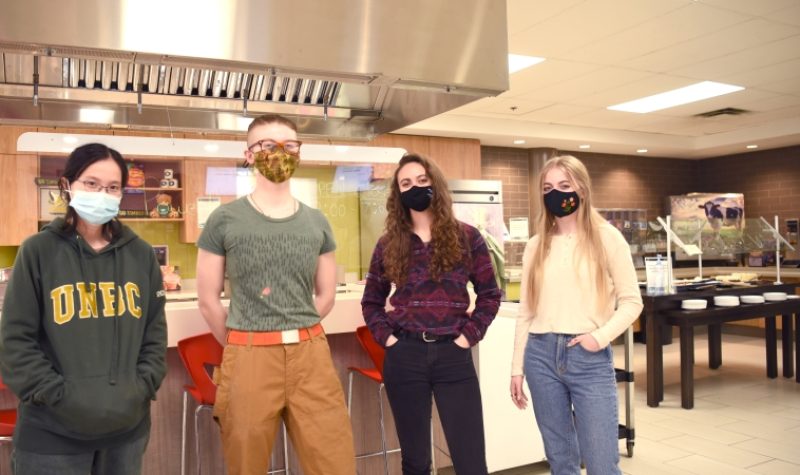Stephen Hawking said "The current climate crisis is evidence that human exploitation of the planet is reaching a critical limit, but human demands and expectations are ever-increasing. We cannot continue to pollute the atmosphere, poison the ocean and exhaust the land when there isn’t any more available."
The floods in southern BC last year created panic in consumers as shelves in grocery stores were empty, even if for just a few days in the north.
Many people feel anxious anticipating what next disaster will create more shortages and limit our supply to food, as wildfire season approaches and climate scientists anticipate more precipitation in the coming years.
Helga Holler-Busch is a student in Forestry and Wildlands Conservation at UNBC. They participated in a call to action initiative called Co-Creating a Sustainable BC, spearheaded by the Fraser Basin Council.
Helga, along with three of their fellow UNBC students, felt the urge to address climate change and create change in the ways we in the north consume food, interpret labels, and utilize single-use containers and bags.
Their project is called Eco-Living Kitchen, or ELK.
ELK entered the Nourishing Innovation Initiative: Campus Nutrition and Food Security Contest. They were among eight teams who each put forward a solution to address food security on one of four University campuses - British Columbia Institute of Technology, Simon Fraser University, Vancouver Island University, and the University of Northern British Columbia.
ELK was the only team from UNBC and won the largest prize out of four finalists from across the province for the Community Cooking on Campus initiative.
Listen below to Pamela Haasen's interview with ELK spokesperson, Helga Holler-Busch.


